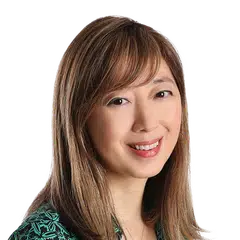Lunch With Sumiko
Be someone who gets stuff done: Tips for success from billionaire Todd Boehly, co-owner of Chelsea, Dodgers and Lakers
The self-made American billionaire investor loves competition and believes it gets the best out of businesses, sports and people, he tells Sumiko Tan.
Sign up now: Get ST's newsletters delivered to your inbox
Todd Boehly is the co-founder and CEO of Eldridge Industries, an $80 billion holdings company with stakes in famous sports and entertainment names such as the Golden Globes, A24, Chelsea F.C. and the LA Dodgers.
Follow topic:
Todd Boehly has a hard, penetrating stare and doesn’t smile much.
It’s not that the American billionaire is unfriendly. In fact, when I replay the audio recording of the interview, I’m struck by how warm, pleasant and candid he sounds.
Face to face, though, there’s a distinct reserve. Over a 75-minute lunch, he’s polite but there’s a sternness that borders on unnerving. He comes across as the kind of boss you’d ride an elevator with in awkward silence.
Then again, perhaps this seriousness is only natural for someone running a business empire as vast and varied as his.
Mr Boehly, 51, is the co-founder, chairman and chief executive officer of Eldridge Industries, which has investments in more than 100 businesses across insurance, fintech, real estate, entertainment and sports.
In December 2024, Eldridge Industries grouped its asset management and insurance ventures under one roof, called Eldridge. As chairman and majority owner, Mr Boehly oversees assets worth US$72 billion (S$92.5 billion).
His portfolio boasts powerhouse global brands.
He is co-owner and chairman of English Premier League football club Chelsea, and owns stakes in baseball team Los Angeles Dodgers and basketball’s Los Angeles Lakers.
In entertainment, his holdings include the assets, rights and properties of the Golden Globe Awards
His investments extend to A24, the global entertainment distribution and production company behind the multiple Oscar-winning movie Everything Everywhere All At Once
And that’s just the glamorous part. Behind the headlines, his interests stretch beyond what can be easily summed up on this page.
I’m meeting Mr Boehly for lunch in March at the Singapore office of Kerry Hill Architects, which is in a Tanjong Pagar shophouse. He arrives looking polished in a well-tailored blue suit paired with a blue shirt and blue tie.
He’s fresh off a stop in Tokyo where the Dodgers opened the 2025 Major League Baseball season with a two-game win over the Chicago Cubs. The games, headlined by the Dodgers’ Japanese superstar Shohei Ohtani, played to sold-out crowds at the Tokyo Dome.
Back in the 2000s, when he worked at global investment and advisory firm Guggenheim Partners, he visited Singapore several times but he admits he isn’t deeply familiar with it.
This visit has multiple purposes, including meeting Kerry Hill Architects, which is famous for designing the ultra-luxe Aman resorts. The Singapore-based firm is working on One Beverly Hills, a US$5 billion development in Los Angeles in which Mr Boehly is an investor.
Slated for completion ahead of the 2028 Los Angeles Olympics, the project will connect the iconic Beverly Hilton and Waldorf Astoria hotels with gardens, retail spaces and a new Aman hotel and high-rise residences. “This is going to offer serenity, amenity, privacy and security,” says Mr Boehly.
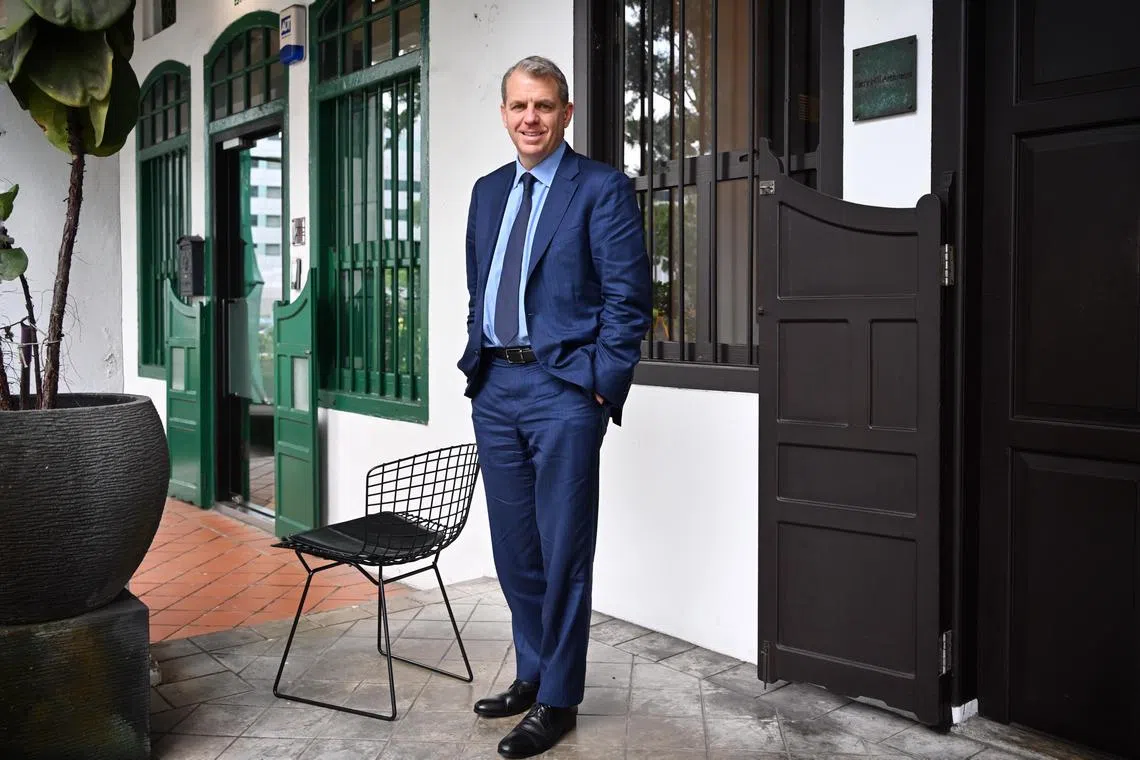
American billionaire Todd Boehly is very involved when it comes to a new business acquisition, but his goal is to “work myself out of a job”. Once the team and business are stable, he steps back to do something else.
ST PHOTO: KUA CHEE SIONG
Eldridge also recently opened an office in Singapore to expand its presence in Asia. It will do so in two key areas: asset management, as well as exporting American and European intellectual property to Asian markets.
Mr Boehly’s portfolio includes the theatrical Cirque du Soleil group and Swingers, a mini-golf and food and beverage concept. His brands could find a home in Asia.
Our lunch is catered from the Coriander Leaf restaurant in nearby Craig Road. We get a tasting plate with potato rolls, mango salad, fish tikka and Burmese tofu curry. The food is artfully arranged on the plate and surprisingly spicy.
“Well, this has got some heat,” Mr Boehly says with a rare laugh, reaching for water. “It’s good. I like it.”
From wrestler to Wall Street
Mr Boehly, who is based in Miami, was with Guggenheim Partners for 14 years, rising to be president and credited with building its asset management unit.
In 2015, he co-founded Eldridge Industries with two Guggenheim alumni – Mr Duncan Bagshaw, who is currently its general counsel, and Mr Tony Minella, its president. Forbes estimates Mr Boehly’s current net worth at US$8.5 billion.
When I ask if he considers himself self-made, he hesitates. “I don’t know what self-made means exactly,” he says. “I didn’t come from a lot of resources, but I came from a great, caring environment that taught me a lot.”
He was born in Fairfax County, Virginia, to a middle-class family. His late father was an engineer who at one point had a house-building business, and his mother taught first grade. He has a sister 19 months younger.
He attended an all-boys private school in Maryland called Landon where he played a lot of sports including baseball and, eventually, wrestling, which became his No. 1 sport. “It was a great childhood,” he says, adding that he had no idea what he wanted to do later in life.
He chose the College of William & Mary in Virginia for its wrestling programme and graduated with a Bachelor of Business Administration degree in finance. On his first day there, he met his future wife, Katie. The couple have three sons aged 23, 21 and 19, all studying in Texas.
Mr Boehly’s final year in university was spent at the London School of Economics, which gave him his first taste of big-city life. “I’d never lived in a big city before, and that led me to want to go to New York.”
After graduation, he worked at investment bank CS First Boston, then private equity firm J.H. Whitney Capital Partners. He joined Guggenheim in 2001, and by 2015 had struck out on his own.
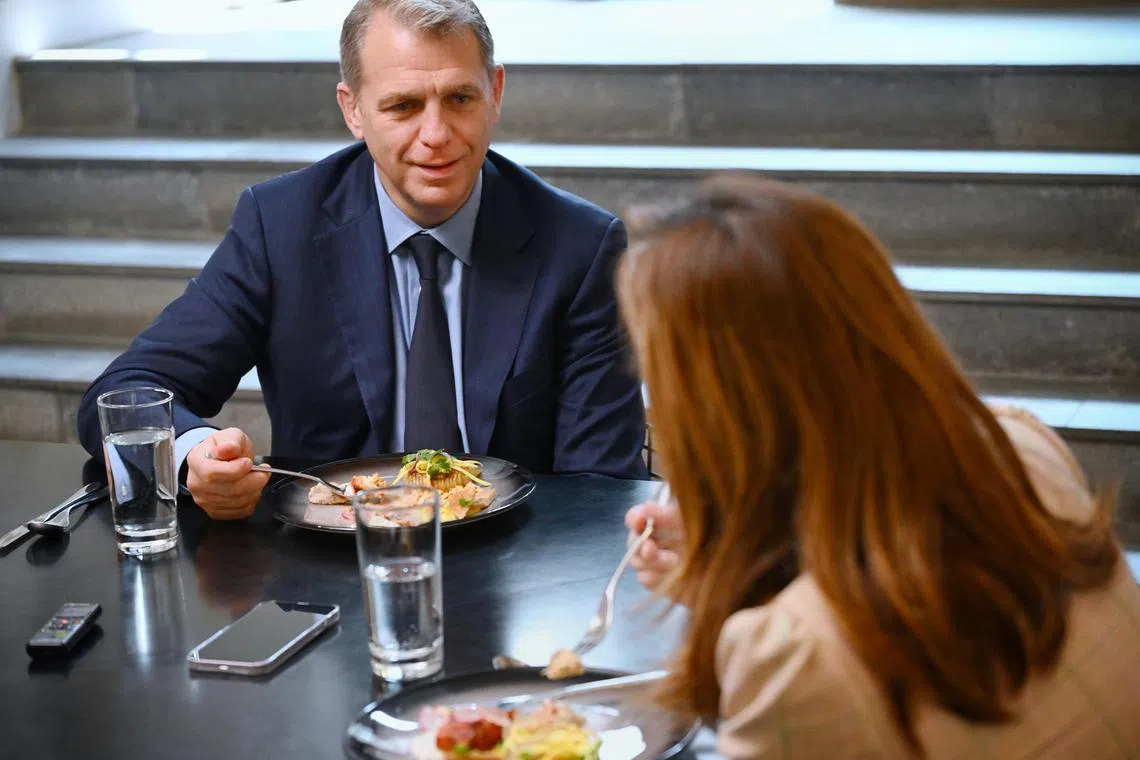
Over a 75-minute lunch, Mr Boehly is polite but there’s a sternness that borders on unnerving. He comes across as the kind of boss you’d ride an elevator with in awkward silence.
ST PHOTO: KUA CHEE SIONG
Forbes reported in 2024 that Mr Boehly invested around US$200 million of his own money in Eldridge Industries, and had funding from a former client, Swiss billionaire Hansjorg Wyss.
Mr Boehly says he named his firm after the historic Eldridge Hotel in Kansas, where he had stayed while negotiating the acquisition of the insurance company Security Benefit. The hotel, and the man it was named after, was an inspiration.
In the 1850s, as Kansas fought to enter the Union as a free state, abolitionist Shalor Eldridge built a hotel as a base for anti-slavery settlers. Pro-slavery forces from neighbouring Missouri burned it down several times, but Colonel Eldridge defiantly rebuilt it.
“I really admired the fortitude and strength of Colonel Eldridge as he continued to build back his hotel,” Mr Boehly says, sketching out the history for me.
As for how he built his own business empire, he describes it as “kind of like a snowball”.
“You keep one foot in front of the other and keep focused on getting something done, and then you pull the ladder up from under you and start climbing again.”
But reality often reshapes plans and “you can plan all you want, and then life kind of tells you how to focus”.
He relishes competition, whether in sports, business or personal growth.
“It is really what makes for excitement and it really pushes the world along,” he says. “If you look at things that become competitive, they always end up being better, right?”
He gives the example of how skis remained unchanged until the arrival of snowboards spurred innovation, leading to vastly improved ski designs.
“Competition always gets the best out of businesses, it gets the best out of sport, it gets the best out of people. So to me, competition really pushes evolution and builds better and better products and experiences.”
Asked if there’s a common thread in his investment choices, he says: “The simple answer is, we look for what people want and what people need.”
So insurance and real estate fall into the need category, and sports, media and entertainment are what people want.
Beyond that, it’s about backing the right people. The Eldridge philosophy is “when we see something that’s working, we want to feed the stars... and then our goal is to really lean in and help it grow”.
He is very involved when it comes to a new acquisition, but his goal is to “work myself out of a job”. Once the team and business are stable, he steps back to do something else. “Ultimately, the denominator is time,” he says.
He stays ready to dive back in if required. “I’m happy to roll up my sleeves and, you know, if I need to, I’ll sweep the floors and clean the bathroom.”
I think he means this literally, too, because after our photo shoot outside the shophouse, he grabs the chair he was posing on and takes it back in, no fuss. The photographer says Mr Boehly had earlier noticed him struggling to get the chair out of the narrow doorway while balancing his camera.
Has he had any business failures?
Sure, he says. A painful lesson came when he invested in a restaurant business but didn’t control the intellectual property, which made it hard for him to get things done. It taught him the importance of owning or co-controlling IP.
I wonder how he manages to go deep across such diverse sectors, and he says he gets first-hand knowledge from leaders in the industry.
Are there areas he won’t invest in?
Well, he says, he has no interest in things that are “legacy”.
“So coal plants. Coal’s not something that we have considered investing in,” he says. “Things where the better days are in the rear-view mirror are things that we are trying to avoid.”
His portfolio includes media titles such as Variety and The Hollywood Reporter. Aren’t they legacy titles? “They are digital assets with authority,” he says, with print editions “more like trophies” that appear in important offices. Earlier in 2025, Mr Boehly was reported to be in talks to invest in Britain’s The Daily Telegraph.
As for his working style, he says it has evolved with experience and he’s more calm and collaborative than before.
What advice would he give young people looking to have a successful career?
“Be someone who gets stuff done,” he says simply.
“Figure out how to provide answers and solutions. If it’s something that you can’t do, just say you can’t do it and move on. Quick ‘no’s are very valuable, (more) than long-drawn-out maybes,” he says. “If you deliver on what you say you can do, then more opportunity just comes your way.”
‘I love the colour blue’
His sports acquisitions have brought him the most headlines, and not always flattering.
His first major deal was in 2012 when he was a key member of a consortium led by Mr Mark Walter, CEO of Guggenheim Partners, to purchase the LA Dodgers from their previous owner for over US$2 billion. A decade later in 2021, Mr Boehly partnered with Mr Walter again, to acquire a stake in the LA Lakers.
In 2022, he led a group that included Mr Walter, Swiss financier Mr Wyss and Clearlake Capital, a US investment firm, to buy Chelsea Football Club
He was first exposed to the English Premier League as a student in London, but really became interested in it around 2014 when Guggenheim opened a London office.
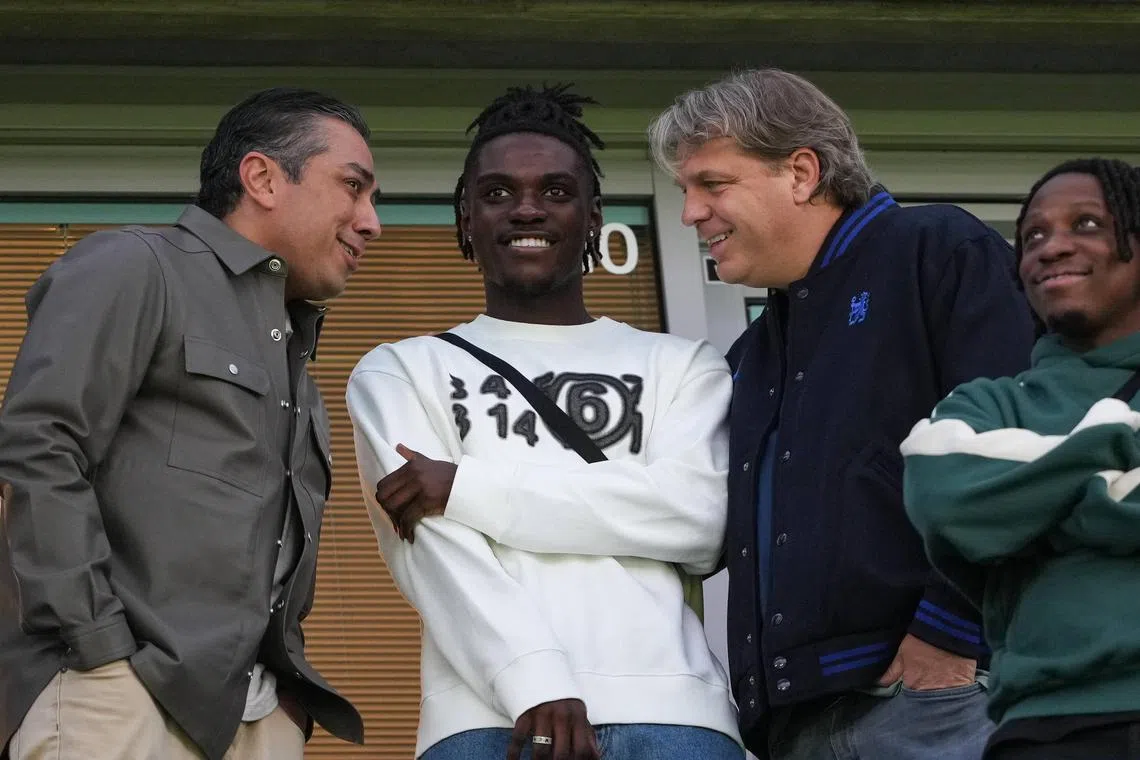
Chelsea co-owner and chairman Todd Boehly (right), with the club’s co-owner Behdad Eghbali (left) and midfielder Romeo Lavia, during an English Premier League match against Luton Town at Stamford Bridge in August 2023.
PHOTO: REUTERS
Did you start off as a Chelsea fan, I ask?
“I started off as a Premier League fan,” he hedges. “I didn’t really have a club.”
But, he adds, he was always drawn to Chelsea. “Frankly, I love the colour blue, right?”
The Dodgers’ official colour is also blue, he points out. “Yeah, basically all I wear is blue. And black and grey.” He allows himself a smile.
British football fans are known to be passionate and vocal. “They’re a demanding audience,” is his understated response when I ask for his view. “Obviously they want to win, so I understand that”.
His approach that teams exist “in service of the fan” keeps him clear-headed amid the relentless scrutiny, I suppose.
As for choosing which team to invest in, he looks at its history and location. Big cities are more able to support competitive teams, he says. “We’ve always been drawn to big markets in big cities with big brands.”
We move on to his philanthropic interests.
A key focus is epilepsy research, which was inspired by his eldest son’s battle with the condition. Following successful brain surgery, the seizures have stopped.
He also supports prostate cancer research and the Milken Centre for Advancing the American Dream, a project by financier Michael Milken to promote equal opportunities.
Speaking of America, I ask him if a small country like Singapore should be worried about President Donald Trump’s moves on trade tariffs
Mr Boehly’s view is that the US remains a strong and enduring economic engine. He sees a shift under way from public to private employment, and while that will lead to more businesses being built in America, “there’s gonna be lots of opportunity for businesses all around the world”.
As for whether he’s Republican or Democrat, he says: “You know, I identify as a common-sense pragmatist, so I identify with elements of both parties quite a bit.”
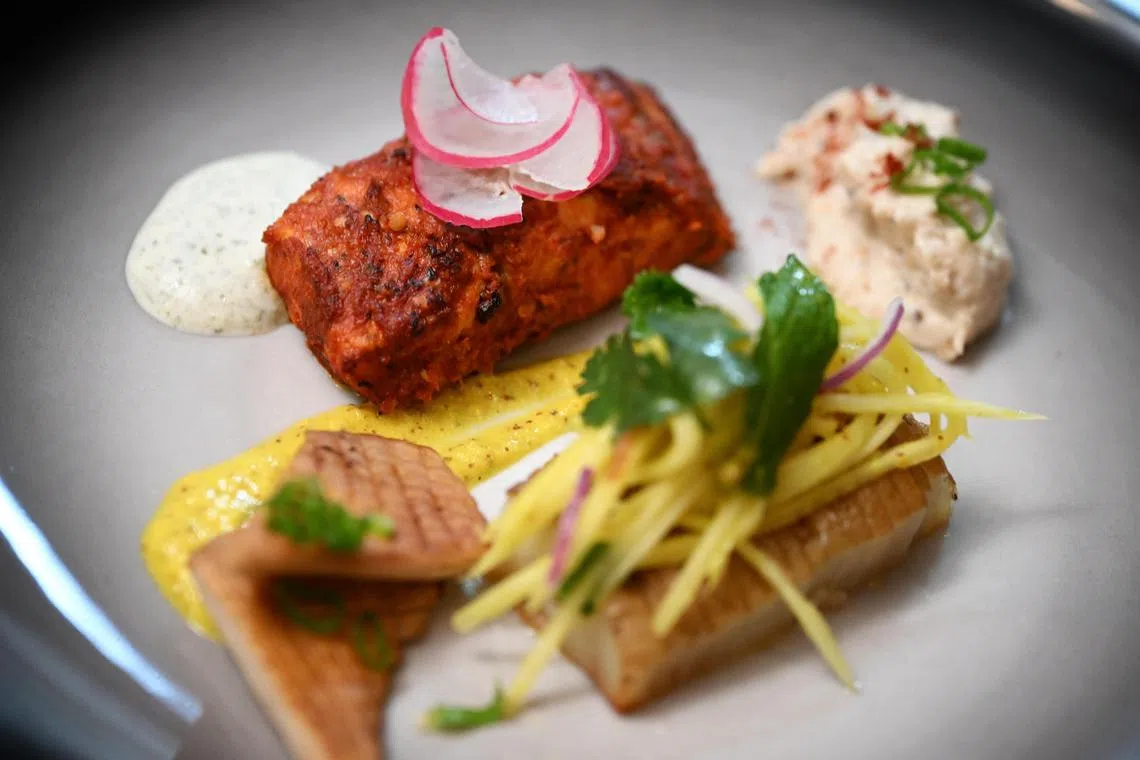
ST20250326_202559800690 Kua Chee Siong/ stlunchtodd/ Sumiko's lunch interview with Todd Boehly. Todd Boehly is the co-founder, chairman and ceo of Eldridge Industries.
ST PHOTO: KUA CHEE SIONG
What we ate
Kerry Hill Architects 29 Cantonment Road
Catered from Coriander Leaf
20 Craig Road, #01-01 Craig Place
2 tasting dishes of potato kathi rolls, green mango salad, fish tikka, Burmese curry, coriander rice: $150
As we wrap up lunch, I wonder what he wants his legacy to be. I’m expecting him to say “Eldridge”, but he tells me, without hesitation: “Most importantly I want to be a great dad to my three kids.”
“Obviously, they’re the extension of me and my wife, and ultimately that’s really what we’ll leave behind on this earth,” he reflects.
“If I can give them the energy and the ability to, you know, continue to grow and to have great integrity and to continue to develop in the direction that they want, that to me is probably my No. 1 goal.”
I could be imagining it, but I believe his gaze softens when he’s saying this.
Sumiko Tan is chief columnist and senior editor, publications.

